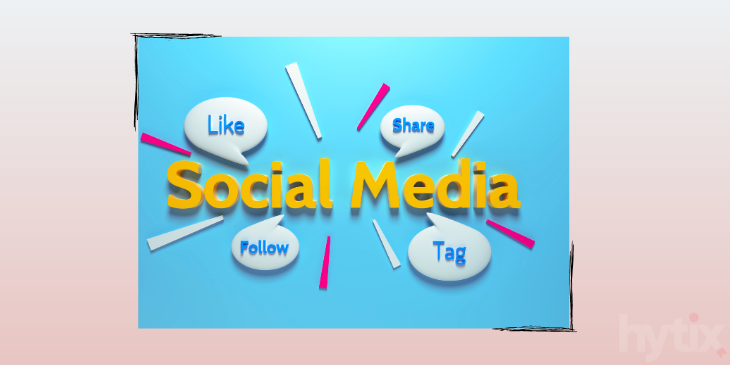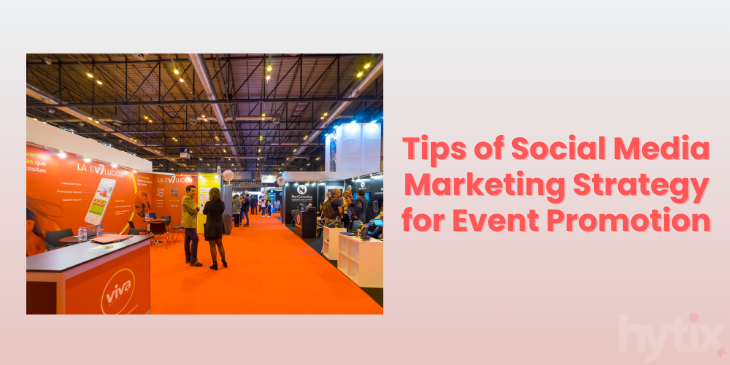Contents
- 1 Power of Social Media for Event Promotion
- 2 Key Strategies to Increase Ticket Sales for an Event
- 2.1 Identify Your Target Audience
- 2.2 Create a Compelling Event Page
- 2.3 Leverage Influencers and Partnerships
- 2.4 Utilize Paid Advertising
- 2.5 Engage with Your Audience
- 2.6 Offer Early Bird Discounts and Promotions
- 2.7 Use High-Quality Visuals and Videos
- 2.8 Create an Event Hashtag
- 2.9 Implement a Content Calendar
- 2.10 Host Contests and Giveaways
- 3 How to Promote an Event on Social Media
- 4 Social Media Marketing Best Practices for Events
- 5 Conclusion
Social media has revolutionized the way events are marketed and promoted, providing unparalleled opportunities to engage with potential attendees and increase ticket sales. Crafting an effective social media marketing strategy for event promotion is essential for ensuring a successful turnout. Below, we delve into the comprehensive strategies and best practices to maximize event visibility and ticket sales using social media.
Power of Social Media for Event Promotion
Social media platforms offer a dynamic way to reach and engage with a vast audience. They provide the means to create buzz, share vital information, and foster a community around your event. The interactive nature of social media makes it an ideal channel for event promotion, allowing for real-time engagement and feedback.
Key Strategies to Increase Ticket Sales for an Event
Identify Your Target Audience
Understanding your audience is the key element of any successful marketing strategy. Use social media analytics tools to gain insights into your target audience’s demographics, interests, and behaviour. This information will help tailor your content and promotional efforts to resonate with potential attendees.
Create a Compelling Event Page
An engaging event page on platforms like Facebook or LinkedIn serves as the central hub for all event-related information. Ensure the page includes an enticing description, high-quality visuals, a clear call-to-action (CTA), and a link to purchase tickets through your event ticketing software.
Leverage Influencers and Partnerships
Collaborate with influencers and relevant brands to broaden your event’s reach. Influencers can share your event with their followers, providing authentic endorsements that can drive ticket sales. Partnering with local businesses or industry leaders can also enhance credibility and visibility.
Utilize Paid Advertising
Social media advertising allows for highly targeted campaigns. Platforms like Facebook, Instagram, and LinkedIn offer advanced targeting options to reach specific demographics. Invest in paid ads to increase visibility, particularly in the weeks leading up to the event.
Engage with Your Audience
Consistently post updates, behind-the-scenes content, and interactive posts such as polls or Q&A sessions to keep your audience engaged. Respond to comments and messages promptly to build a rapport with potential attendees.
Offer Early Bird Discounts and Promotions
Create a sense of urgency by offering limited-time discounts for early ticket purchases. Promotions and exclusive offers can incentivize users to buy tickets sooner rather than later.
Use High-Quality Visuals and Videos
Visual content chance to perform better on social media. Share high-quality images and videos that effectively represent the significance of your event. Highlight past events, highlight key speakers or performers, and give sneak peeks of what attendees can expect.
Create an Event Hashtag
Create a unique and easy hashtag for your event. Encourage attendees, partners, and influencers to use it in their posts. This not only boosts visibility but also helps in tracking conversations related to your event.
Implement a Content Calendar
Plan your social media content with a detailed content calendar. Schedule your social media posts to ensure consistent and timely communication. Include a mix of promotional content, engaging visuals, and user-generated content.
Host Contests and Giveaways
Contests and giveaways like offers can create excitement and increase engagement. Offer free tickets or exclusive merchandise as prizes. Ensure participants follow your social media accounts and share your event to enter.
How to Promote an Event on Social Media

Effective advertising on social media requires a mix of organic and paid strategies. Here is a detailed approach:
Organic Promotion
- Share regular updates about the event on all your social media channels.
- Post behind-the-scenes content to build excitement.
- Engage with your followers by commenting on their posts and direct messages.
- Encourage user-generated content by asking attendees to share their plans and experiences.
Paid Promotion
- Use Facebook Ads Manager to create targeted ads. You can define your audience based on location, interests, behaviours, and more.
- Promote posts that have high engagement to reach a broader audience.
- Utilize Instagram Stories ads to capture the attention of users with short, engaging content. Explore LinkedIn Sponsored Content for professional and industry-specific events.
- Event Marketing Ideas and Strategies
Countdown Campaigns
Create a sense of anticipation with countdown posts leading up to the event. Share daily updates, highlighting various aspects of the event to maintain excitement.
Highlight Testimonials and Reviews
Share testimonials from past attendees or endorsements from significant figures. Positive reviews can significantly influence potential attendees.
Behind-the-Scenes Content
Provide sneak peeks of the event preparation. Behind-the-scenes content can humanize your brand and make the audience feel more connected to the event.
Interactive Content
Use polls, quizzes, and sessions-like posts to engage your audience. Interactive content can increase engagement and provide valuable insights into your audience’s preferences.
Collaborative Live Sessions
Partner with influencers or speakers to host live sessions. Live streams can offer a real-time connection with your audience and generate buzz.
Email Marketing Integration
Integrate your social media efforts with email marketing. Use email campaigns to remind subscribers about the event, share updates, and provide exclusive content.
Retargeting Ads
Use retargeting ads to reach people who have shown interest in your event but have not purchased tickets yet. Retargeting can help convert these potential attendees into ticket buyers.
Exclusive Content for Followers
Offer exclusive content or early access to tickets for your social media followers. This can incentivize more people to follow your accounts and stay engaged.
Post-Event Marketing
Post-event marketing is essential to maintain momentum and build a loyal community for future events. Here is how to approach it:
Share Event Highlights
Post photos and videos from the event to relive the best moments. Tag attendees and encourage them to share their own experiences.
Collect Feedback
Try polls and survey activities on social media to gather feedback. Understanding what attendees liked or disliked can help improve future events.
Thank Your Audience
Show appreciation to everyone who attended and supported your event. A simple thank you post can go a long way in building goodwill.
Promote Upcoming Events
Use the momentum from your recent event to promote upcoming events. Offer early bird discounts or exclusive offers to keep the excitement alive.
Leveraging Event Ticketing Software and Online Event Setup
An effective event marketing strategy is supported by robust event ticketing software and a seamless online event setup. Here is how these tools can enhance your social media marketing efforts:
Integrated Ticketing Solutions
Choose an event ticketing platform with features of integrate with social media platforms. This makes it easy for potential attendees to purchase tickets directly from your social media pages.
Real-Time Analytics
Use the analytics provided by your ticketing system to track sales and understand buyer behaviour. This data can inform your social media strategy and help optimize campaigns.
Streamlined Checkout Process
Ensure that the ticket purchase process is smooth and user-friendly. A complex checkout process can lead to neglected carts and minimize sales.
Mobile Optimization
With a considerable number of users accessing social media on their mobile devices, your event page and ticketing system must be mobile-friendly.
Social Media Marketing Best Practices for Events
Consistency is Key
Manage a persistent posting schedule across all your social media platforms. Regular updates keep your audience informed and engaged.
Authenticity Matters
Be genuine in your interactions. Trustworthiness creates trust and fosters a stronger connection with your audience.
Monitor and Respond
Keep an eye on comments and messages. Prompt responses show that you value your audience’s input and can help address any concerns or questions.
Analyze and Adjust
Regularly review your social media analytics to understand what is working and what is not. Utilize this data to enhance your marketing strategy and improve future campaigns.
Leverage User-Generated Content
Motivate event attendees to share their experiences and tag your event on social media. User-generated content can provide social proof and enhance your event’s credibility.
Conclusion
Promoting an event on social media requires a strategic approach, blending creativity with data-driven insights. By understanding your audience, leveraging influencers, creating engaging content, and using advanced targeting methods, you can significantly boost ticket sales and ensure the success of your event. Integrating a robust event ticketing system and maintaining post-event engagement are crucial components of an effective social media marketing strategy. With these best practices, your next event is poised to achieve greater visibility and higher attendance, driving immediate and long-term success.
